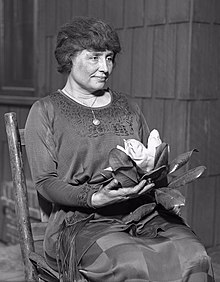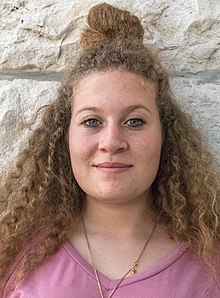Esther Ibanga is a Nigerian pastor and dedicated community organizer for peace in conflict-ridden regions who has received the Niwano Peace Prize for her advocacy of peace and unity in Jos, Nigeria. She was born in 1961
in Kagbu, Nigeria, the seventh of ten children, eight of them girls. Both of her parents were very religious; her father was a policeman who won awards for his honesty and bravery, and her mother went on many mission trips as part of her involvement with her church. Ibanga earned a degree in business administration in 1983 from Ahmadu Bello University, and after serving the mandatory year in the National Youth Service Corps, she went to work for
the Central Bank of Nigeria, where she eventually gained a position as a manager. She left the bank to become the first female church leader in the city of Jos, Nigeria, in 1995.
In 2010, Pastor Ibanga founded the Women Without Walls Initiative in response to the constant state of crisis in Plateau State Nigeria since 2000. WoWWI is an NGO that includes Nigerian women from all walks of life and provides advocacy, training for women in building peace, mediation between warring parties, help for people displaced within Nigeria, assistance to the poor, empowerment of women and youth, and development projects in underprivileged areas to prevent grievances from sparking violent conflicts. Her hard work and dedication has helped to restore peace between Christian and Muslim communities in Jos North, a potentially volatile flashpoint. Her approach is to empower women, both inside and outside of Nigeria, to successfully strive to advance the status of women and children of all ethnicities, religions, and political leanings – to allow women to realize themselves as “natural agents of change”.
Pastor Ibanga was the leader of a march in February 2010 to the Jos government house in protest of the Dogon Nahawa ethno-religious crisis, in which many lives, including those of women and children, had been lost; more than 100,000 women dressed in black participated. When 276 teenaged girls were kidnapped by Boko Haram terrorists from their school in Chibok, Nigeria, WoWWI joined in the Bring Back Our Girls campaign with other women leaders. Rallies crossing religious and cultural lines were held to demand that the government expedite the girls’ release. Pastor Ibanga continues to campaign for the freeing of the 113 girls who are still held captive and speaks internationally on the issue.
This excerpt is from The Book of Awesome Women by Becca Anderson which is available now through Amazon and Mango Media









